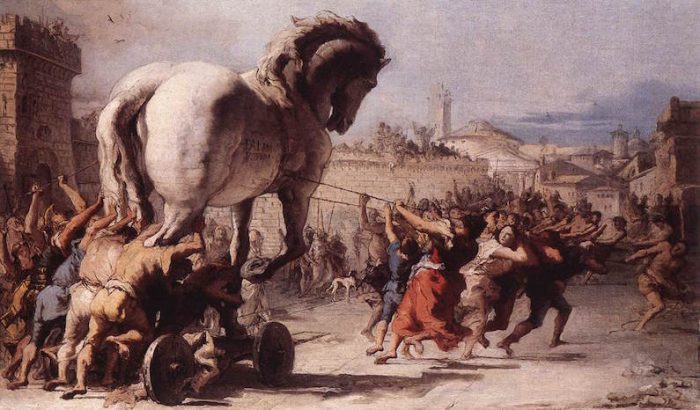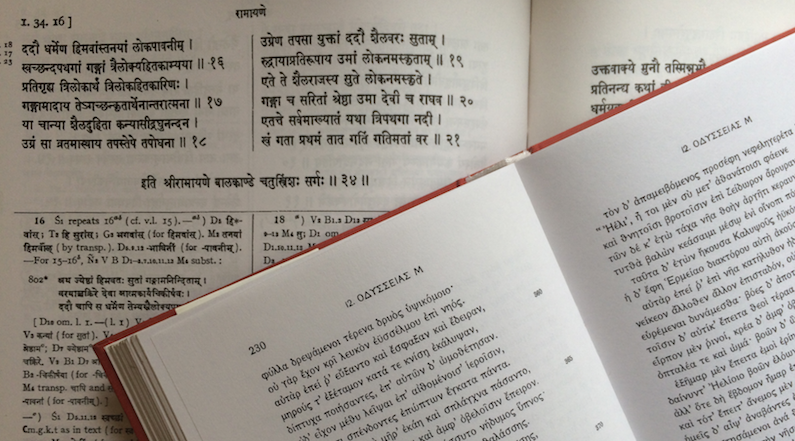
by Zabaan | Sep 11, 2019 | Classical languages, Philosophy, Sanskrit, Spirituality
The Upanishads are a repository of some of the finest and most intricate thoughts and sayings in the Indian philosophical and spiritual tradition. Of these, traditionally, four sayings (vākya), one from each of the Vedas, are said to sum up the essence of all the...

by Zabaan | Oct 12, 2015 | Ancient Greek, Classical languages, Literature
The Iliad is a Greek epic poem of 15,693 lines composed sometime during the first half of the 7th century BC on the shores of Asia Minor and the very first record of poetic activity in the west. And what a start it is! The work is named after Ilios, an alternative...

by Zabaan | Jul 31, 2015 | Ancient Greek, Classical languages, Sanskrit
Of all the Indo-European languages, ancient Greek and Sanskrit are undoubtedly the two which exhibit the clearest signs of originating from one common ancestral language. These signs were first observed in their shared basic lexicon containing, for example, identical...

by Zabaan | Jul 20, 2015 | Classical languages, Hindi, Sanskrit
“Without your love, I’m like a song without words, just like a nest without birds … I’m like a plane without wings, a violin with no strings.” You can almost hear Billie Holiday sing through the nostalgic pitter-patter...

by Zabaan | Jul 7, 2015 | Classical languages, Hindi, Sanskrit
Sanskrit and Hindi are both part of the Indo-European language family and share, if one looks closely enough, many of its distinctive features. In the case of Hindi, the language has been so tossed about in the seas of history, that many shared features have been torn...

by Zabaan | Jul 2, 2015 | Classical languages, Hindi, Sanskrit
The mother-tongue of all Indo-European languages was a root-based language, meaning that all or most of its verbs, nouns and adjectives could be reduced to a meaningful core, an atom of meaning, so to speak, which itself could not be broken down into smaller...







